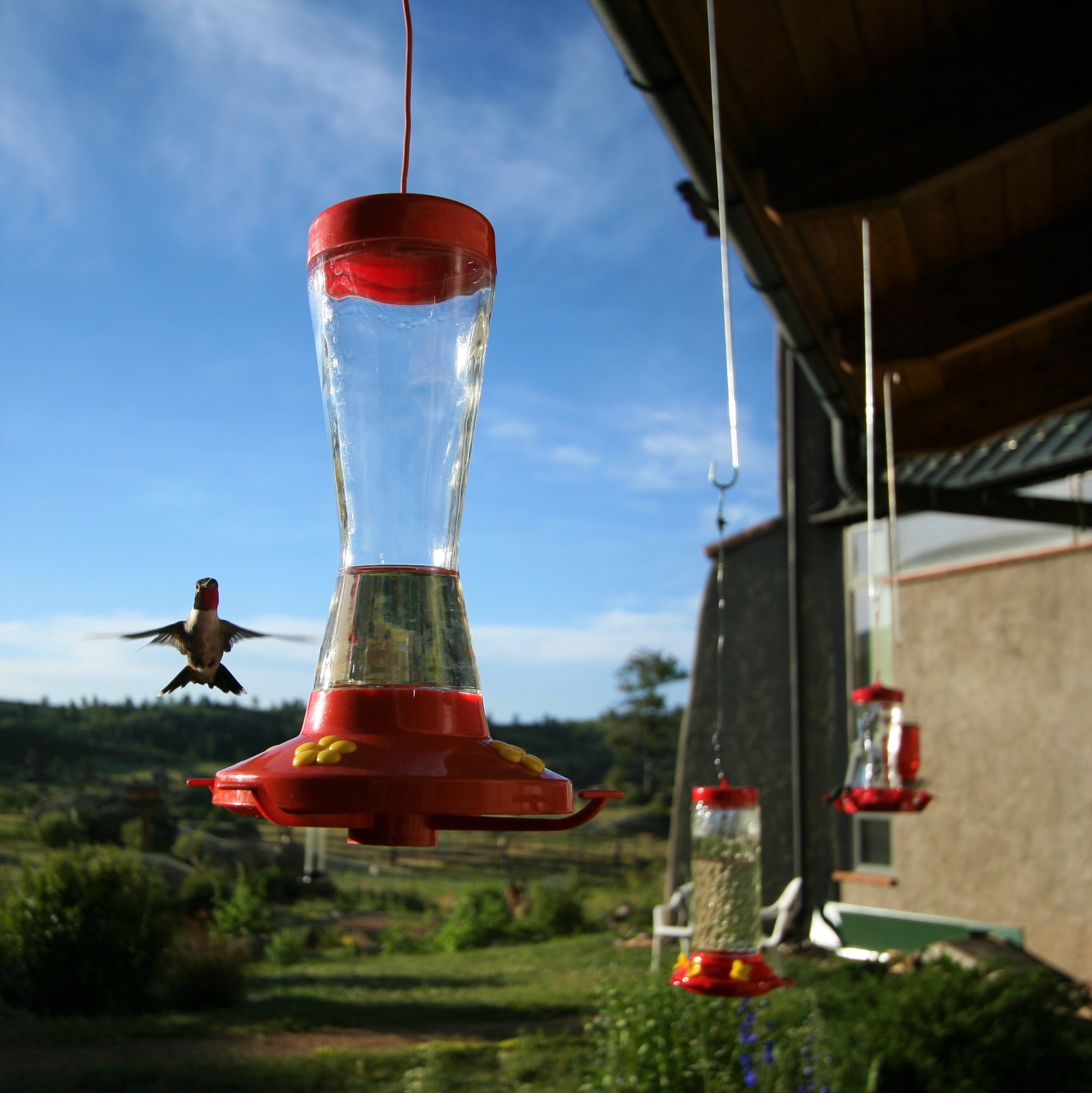
One sign of Spring at the Abbey is the presence of hummingbirds. While the human visitors here are lacking due to COVID-19, there is no shortage of winged guests begging our hospitality in the form of sugar water.

One sign of Spring at the Abbey is the presence of hummingbirds. While the human visitors here are lacking due to COVID-19, there is no shortage of winged guests begging our hospitality in the form of sugar water.
A reflection on the Body and Blood of Christ by Mother Maria-Michael Newe, OSB
As in the garden of Gethsemane when Christ soaked up all the evil of the world and took it upon Himself, when we receive the Body of Christ and our venial sins are forgiven, Christ soaks up from us all the evil. What are we doing with that? Do we just receive Communion and go on with life? Or do we really take it as a remedy to whatever is in us that is not of God? Do we ask for the graces that will change us? After receiving the Eucharist, we should never be the same. It should have an incredible effect in us. It should change us. But we have to be attentive to it, and we have to let God build on us. God can take everything out of you that is evil: jealousy, anger, agitation, pride, envy, etc. These things continually creep up in our lives, but we can fight against them by receiving Holy Communion as often as we can. If you want to be made new, God will do it, there is no doubt. When we start paying attention to the reality of what is happening, life changes for us.
Regarding the Precious Blood of our Lord, it is very powerful to spiritually cover ourselves with His Precious Blood. The Blood of Christ is the life of Christ. What gave Him life and poured through Him we ask to be poured over us. He pours it out as a fountain that never stops, and we can drink of it fully in the spirit. This will also help transform us. So we take steps of holiness; sometimes they’re big and sometimes they’re small. What matters is that we keep taking those steps forward, and little by little God truly will make all things new.
“Suppose that there are many who bring their candles, one weighing an ounce, others two or six ounces, or a pound, or even more,…in each candle, whether large or small, is the whole light, that is to say, the heat, the color, and the flame; nevertheless you would judge that he whose candle weighs an ounce has less of the light than he whose candle weighs a pound. Now the same thing happens to those who receive this Sacrament. Each one carries his own candle, that is the holy desire, with which he receives this Sacrament, which of itself is without light, and lights it by receiving this Sacrament…You receive this Light according to the love and fiery desire with which you approach It.”
St. Catherine of Siena, The Dialogue, A Treatise of Prayer
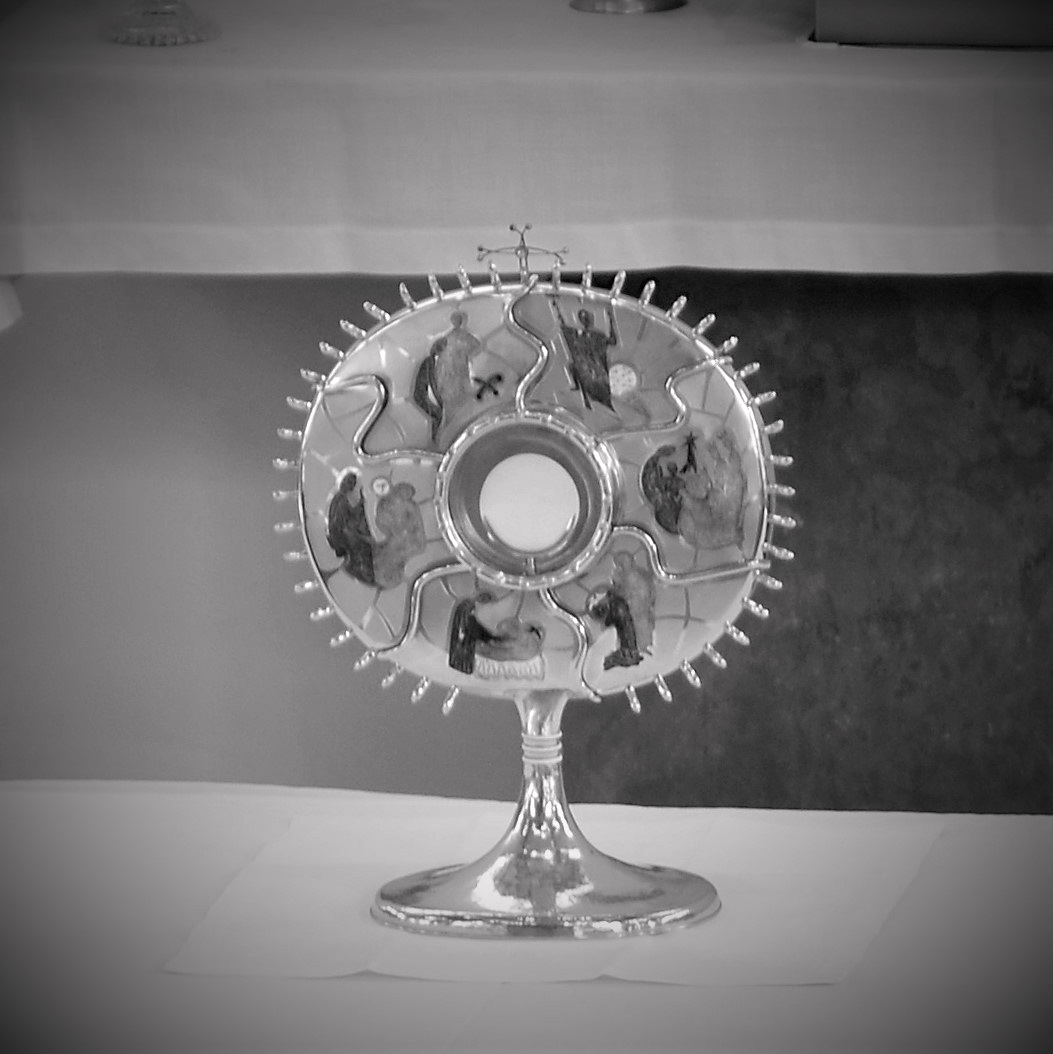
Click here to learn about the Eucharistic miracle of Lanciano, where a consecrated host was physically changed into heart tissue.
A reflection on the purpose of the Holy Rule of St. Benedict by Mother Maria-Michael Newe, OSB
The Rule of St. Benedict outlines for us how to live a righteous life, and most importantly, it leads us to love. At the end of our lives, we will be judged by love. Just as the law isn’t going to save us so the Rule isn’t going to save us. But if we do what it says, it leads us to love.
In the Prologue, St. Benedicts says that his Rule is from “a father who loves you” (RB Prologue:1). His bottom line is that he’s writing it out of love. According to the dialogues of St. Gregory, at the end of Benedict’s life, his love needed to be perfected. So St. Scholastica, who was more perfect in love, was there to show him this last mark of his life that was needed—that love triumphs. The law was good and necessary, but it leads to love, and that’s its only purpose. (Click here for Gregory the Great’s account of this meeting).
Again, we hear in the Rule that “as we advance in the religious life and faith, we shall run the way of God’s commandments with expanded hearts and unspeakable sweetness of love” (RB Prologue:49). That’s what we’re all supposed to become. That’s what St. Benedict so desires for us. It is nothing more than the gospel message to love God and love our neighbor, and he shows us clearly a way to do this in his Rule. I challenge everyone to read Chapter 4 of the Holy Rule and pick one thing to work on for the good of the Body of Christ, for the better of another, for love. Do this seriously, that Christ may look upon you and say, “What a light in this world, which is so needed. I see clearly that my death meant something.” And in this way we will comfort the heart of Christ.
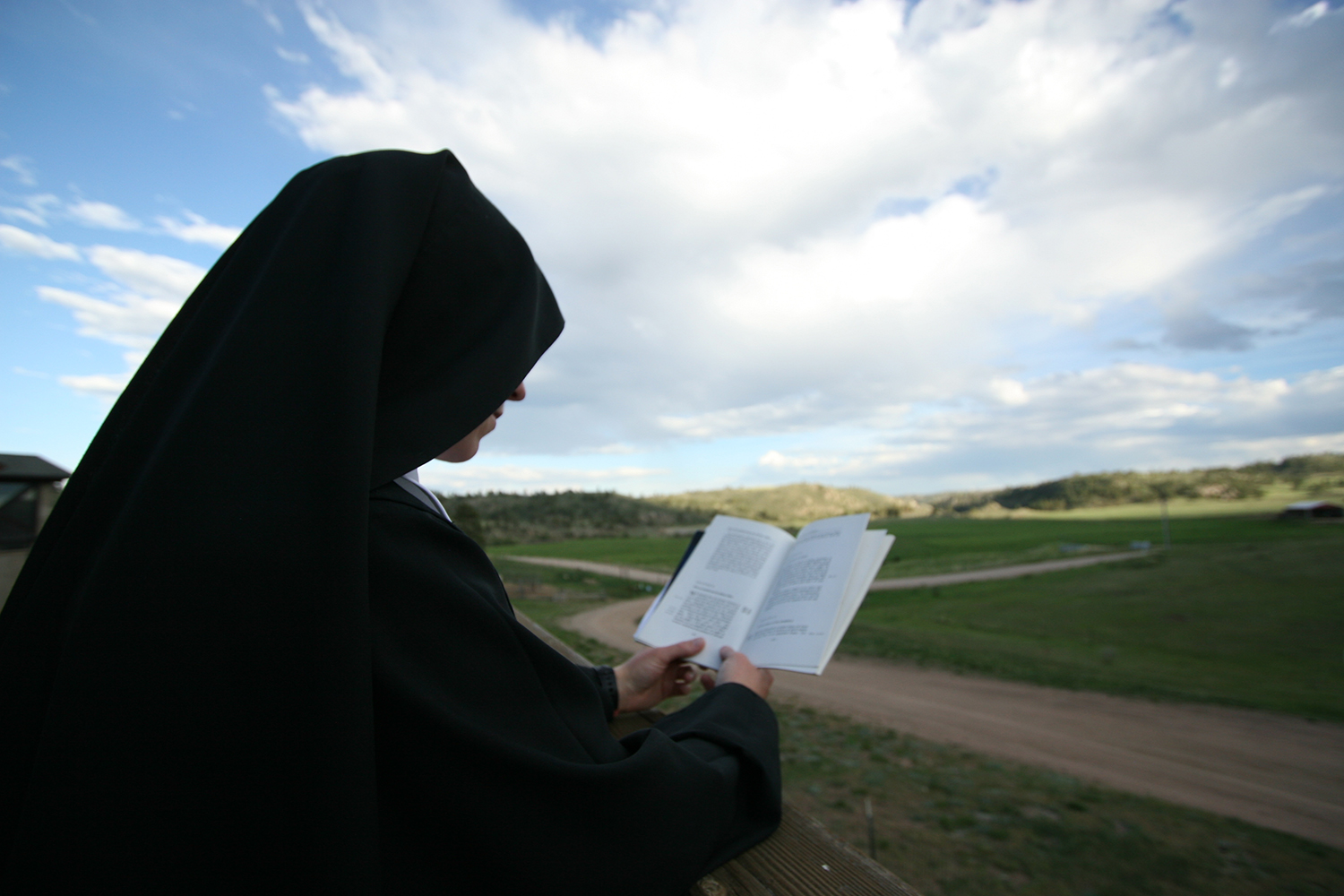
A reflection on the first reading from the Office of Readings for the second Tuesday of Easter (Revelation 2:1-11) by Mother Maria-Michael Newe, OSB
The Book of Revelation has a wonderful word for us today. St. John addresses the churches at Ephesus and Smyrna, so his message is in one sense for a particular time, and yet it also contains a window to eternity. He poetically writes:
…the one who holds the seven stars in his right hand and walks among the seven lampstands of gold has this to say, ‘I know your deeds and your labors and your patient endurance. I know you cannot tolerate wicked men. You have tested those self-styled apostles who are nothing of the sort and discovered that they are imposters. You are patient and endure hardships for my cause. Moreover you do not become discouraged. I hold this against you, though. You have turned aside from your early love. Keep in mind the heights from which you have fallen. Repent and return to your former deeds.’
Revelation 2:1-5
What I love about this admonition is that it tells us what is important to God. What is so important is that we keep returning to Him. Sometimes turning aside just means you are looking the other way, but He is a jealous God, and He wants to mean so much to us that we can’t keep our eyes off Him. He desires that we so trust Him. Christ wants to brush away anything in our hearts that might impede us from looking at Him. It’s as if He says, “Whatever it is, bring it to me. I don’t want anything to impede us. Remember that I’m all powerful…I have the power to forgive. I have the power to raise you up. I have the power to do all things for you. I only ask one thing: love Me first. Let Me be your first glance. Let Me have everything in you. And trust Me, I’ll take care of the rest.” Now that’s love. And it is such a treasure for Him when we are no longer afraid to bring Him everything that is troubling us, everything that is embarrassing, and believe that He is just so pleased to find that we trust Him. That’s what means so much to God—that we trust Him. To think that one can be perfect and not need God is really an abomination. That hurts Him more than anything. When we are real and honest we know that we need Him, and this is our great joy.

In memory of our Sister Augustina (1925-2019) on the anniversary of her monastic profession, May 3, 1950
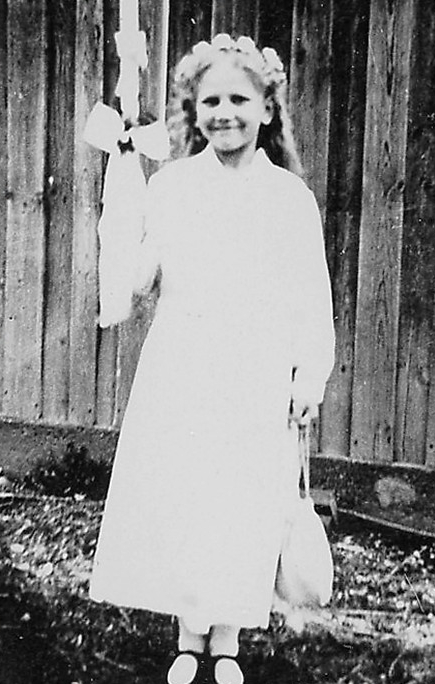
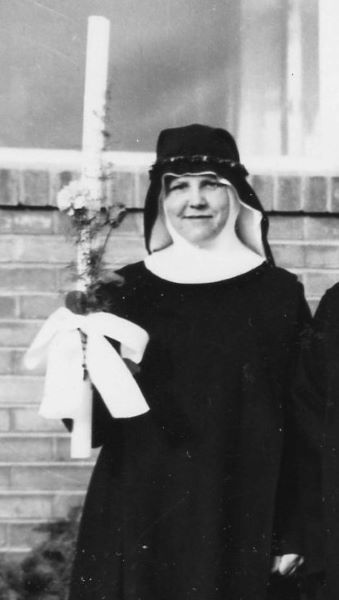

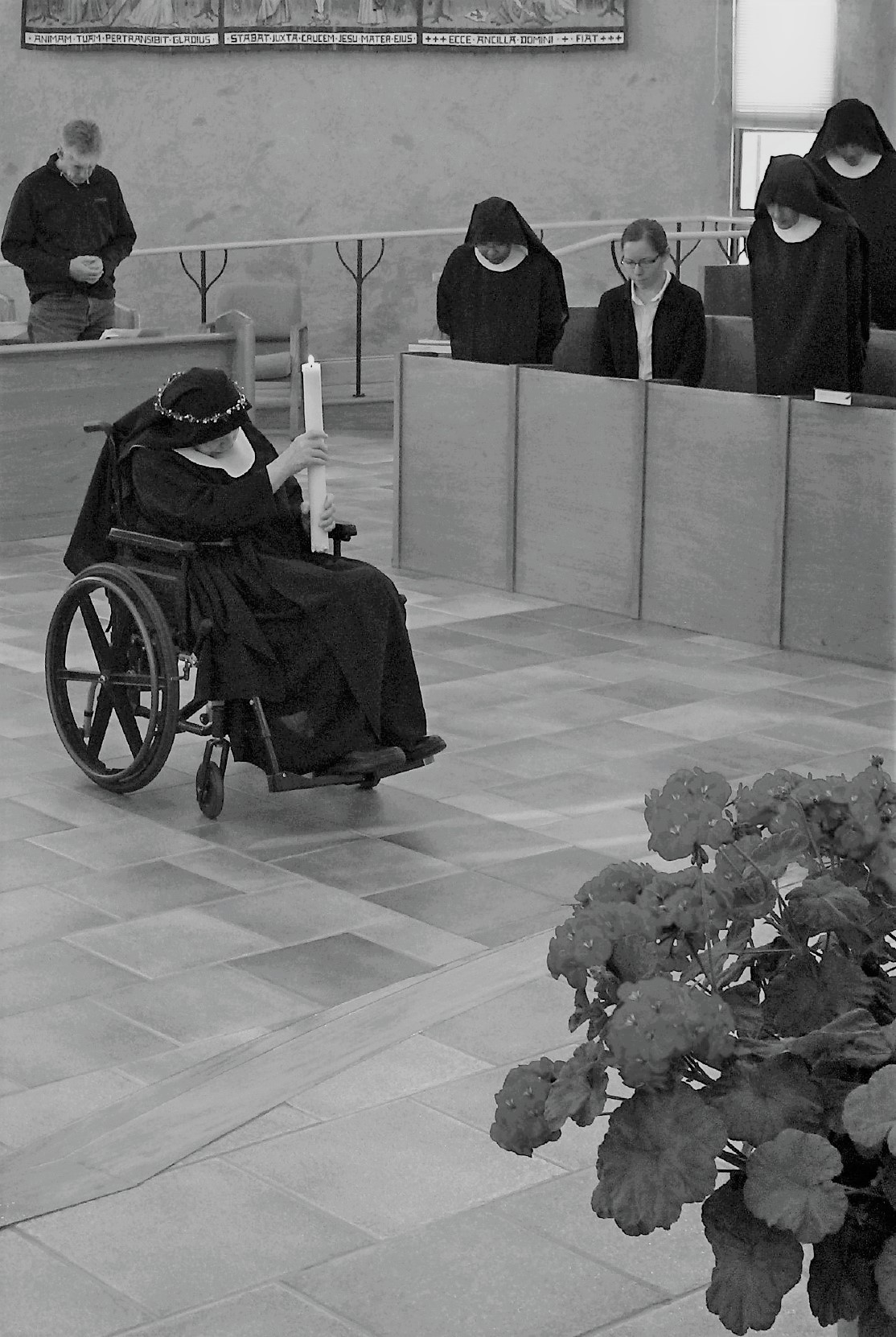

When our Sister Augustina Höchbauer died October 8th, she left many delightful memories of her caring, humor, wisdom, and love to those who knew her.
Growing up in Hundsschweif, Bavaria during World War II sharpened her awareness of those suffering or in need around her, and she brought this deep care for people with her when she entered St. Walburg in Eichstätt and later when she came to the foundation in Boulder. As cook in the Abbey kitchen, she did not limit herself to feeding the sisters and guests, but also fed any comers, including dogs, cats, and a local skunk.
Later in life when she no longer cooked, she was still very concerned that those around her were well fed. During many a community supper, she would look up from her wheelchair and spot a sister down the table who hadn’t been served yet. Tilting her own bowl in the direction of the Sister, she would inquire, “Would you like some soup, Sister?” Only after she had offered each part of her supper to each Sister would she eat it herself. Sr. Augustina seemed convinced that all young Sisters were ravenous at all times, and she would save the cookies and candies she received in a special tin in her room. “Not now, Sister, I eat it later,” would be the explanation. But later: “Do you see that box?” she used to whisper conspiratorially to her assistants. “Open it up. There is something nice for you inside.”
Her caring attitude toward people around her extended beyond feeding them. She had a particular knack for correcting with humorous affection. To the Sister who drove her wheelchair with greater speed than grace, Sr. Augustina would say with a playful shake of her finger, “If the police catch us, they give you a speeding ticket!” Another helper cleared her throat excessively. When the racket did not subside, Sr. Augustina said with a twinkle, “I’m terrified! Do you hear the bear growling in here? I think he eats me up!” Once, when a younger Sister was trying to give physical assistance too efficiently, she cautioned her: “Sr. Scholastica doesn’t like it if she has to sew my head back on.” Since she offered rebukes as affectionately as she offered cookies, it was never in doubt that all would be forgiven and forgotten.
Sr. Augustina’s example was one of practical wisdom, and her great love for the Lord shone through it. On Sundays, the Sister assigned to help her after Mass would offer her coffee, a snack, a German magazine, a walk in the garden, and anything else she could think of. The answer was usually an off-handed, “nein!” (“no!” in German). As the assistant began running out of ideas, Sr. Augustina would say at last, “You know what I really want, Sister? What I really want is to go to Church.” It was no surprise when Sr. Augustina greeted her final illness with the same joy and wit as ever. She smiled at her visitors and sang to her helpers as they put her to bed the last time. She suffered bravely to the end. All her cares and quips and efforts flowed naturally from her life of joyous love and hope in God.
But one wintry night a few years before she died, Sr. Augustina herself best summed up this love that fed everyone she met. In the midst of lively stories of her childhood and merry quips about bedtime, she suddenly paused and smiled at the Sister assisting her. “I think about it so often…I’ll actually look at God,” Sister Augustina said. “I want so badly to see Him…”
by Sister Maria-Raphaelle, OSB
A reflection on the Gospel reading for April 15, 2020 (Luke 24:13-35) by Mother Maria-Michael Newe, OSB
After His Resurrection, Jesus appears to His disciples and asks if they have anything for Him to eat. We can see by this that He so wants to be at home with them, wants them to recognize that it’s really Him, and they do not need to fear. I can imagine Christ saying, “I’m here with you, I’ll eat with you, I’ll do all things with you…Do not be afraid.”
Then we hear that “He opened their minds to understand the Scriptures” (Luke 24:45). I think this is the key to Lectio Divina—it’s not something we do of ourselves, but something Christ does. All we need to do is be present. He can open the Scriptures for us. He can bring to life those words. You are going to hear it straight from Him. I pray that whole world would experience this grace, because His words are life. They are the sword that can cut away all evil, and the very thing that is light and gives light. Take the time to read the Scriptures and delight in them, because God meets you in them, and He delights in you.
Christ gave us His very self, and what will we give Him in return? I hope we will offer Him our very selves, over and over again. That’s what we can do every time we read the Scriptures: “God, I offer you myself again. Let me be that vessel You fill up.”
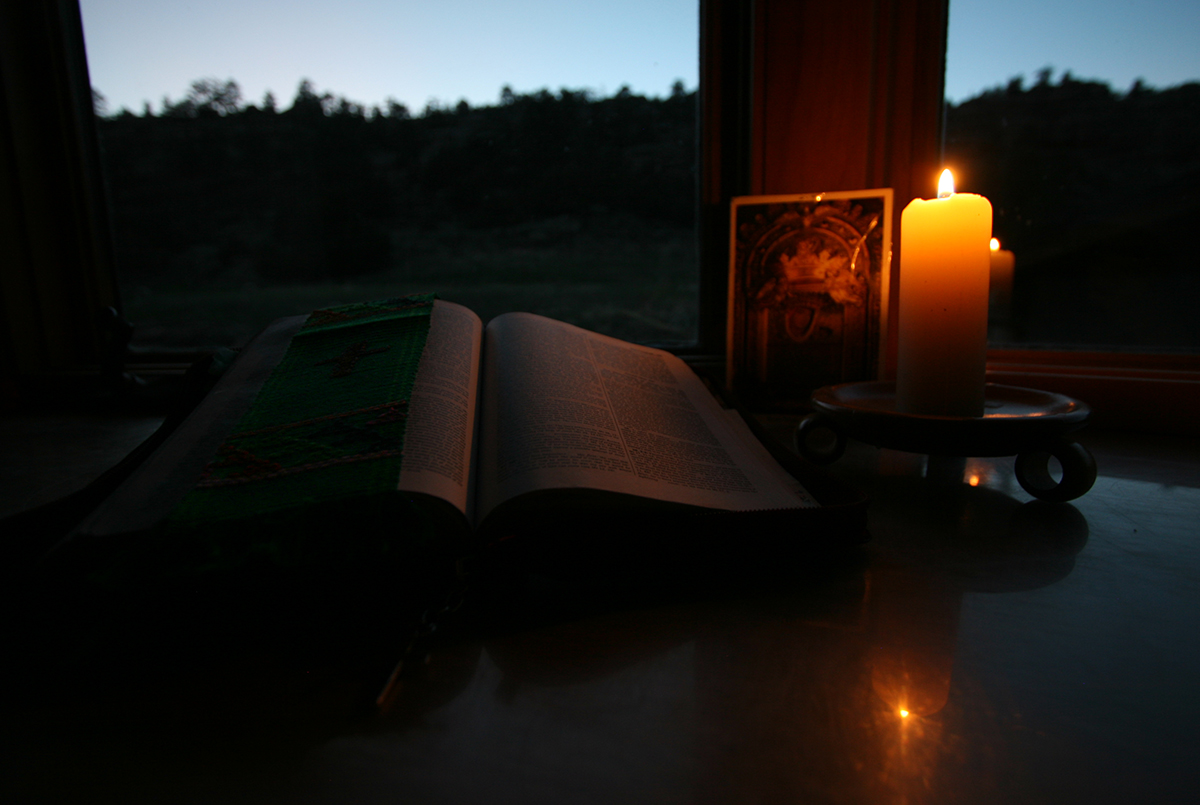
…my Father gives you the true bread from heaven. For the bread of God is that which comes down from heaven and gives life to the world.” So they said to him, “Sir, give us this bread always.” Jesus said to them, “I am the bread of life; whoever comes to me will never hunger, and whoever believes in me will never thirst…and I will not reject anyone who comes to me, because I came down from heaven not to do my own will but the will of the one who sent me.
John 6:32-38, abridged
A reflection on the joy of Christ’s Resurrection by Mother Maria-Michael Newe, OSB
If the evil one plots evil against others, I think that God must all the more plot our good. Now have you ever heard of anybody plotting good for another? No, because “good” doesn’t seem like it’s something to hide. “Plotting” implies that you’re creeping around waiting for the moment to do something; well what if that’s exactly what God is doing? What if God is just waiting for the right moment to plop good into our laps? I think He likes to keep us waiting sometimes so that we are all the more surprised when the good happens. It’s like when you turn around and you find unexpectedly delightful. There are so many ways in which God plots good for us, and if we can join Him in that and look for the little good we can do for each other, then we are participating in that joy of Christ’s giving.
After Jesus’ Resurrection He is really funny; His personality really seems to delight in surprising people. Think of that wonderful image of Christ sitting on the beach making breakfast for His friends, telling them how to have more success with their fishing efforts, and just waiting for them to catch on to the fact that it is Him (John 21). We will be able keep our minds on the good things if we try to imitate Christ’s example of plotting good, always thinking of ways we can surprise one another with unexpected acts of love.
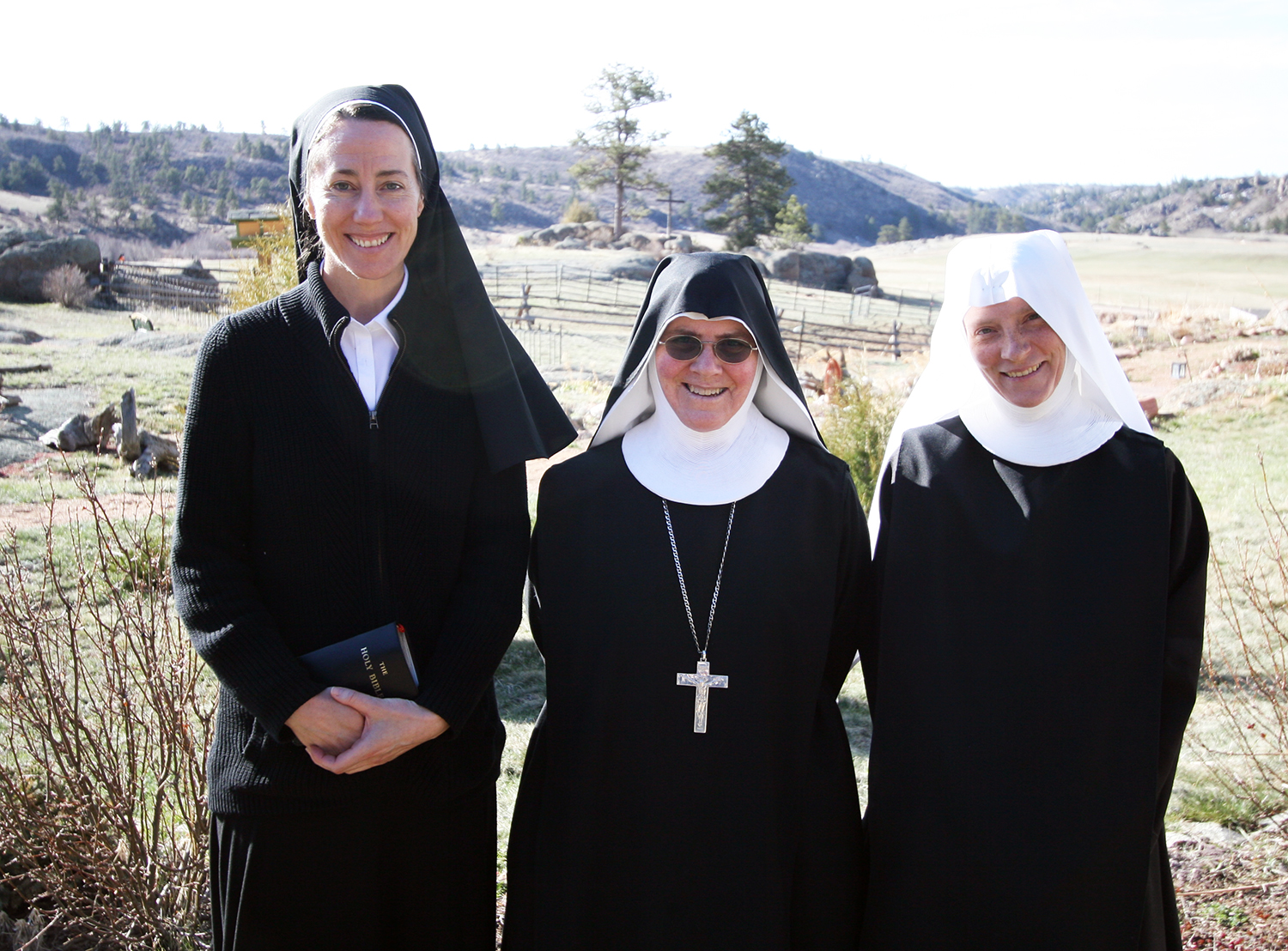
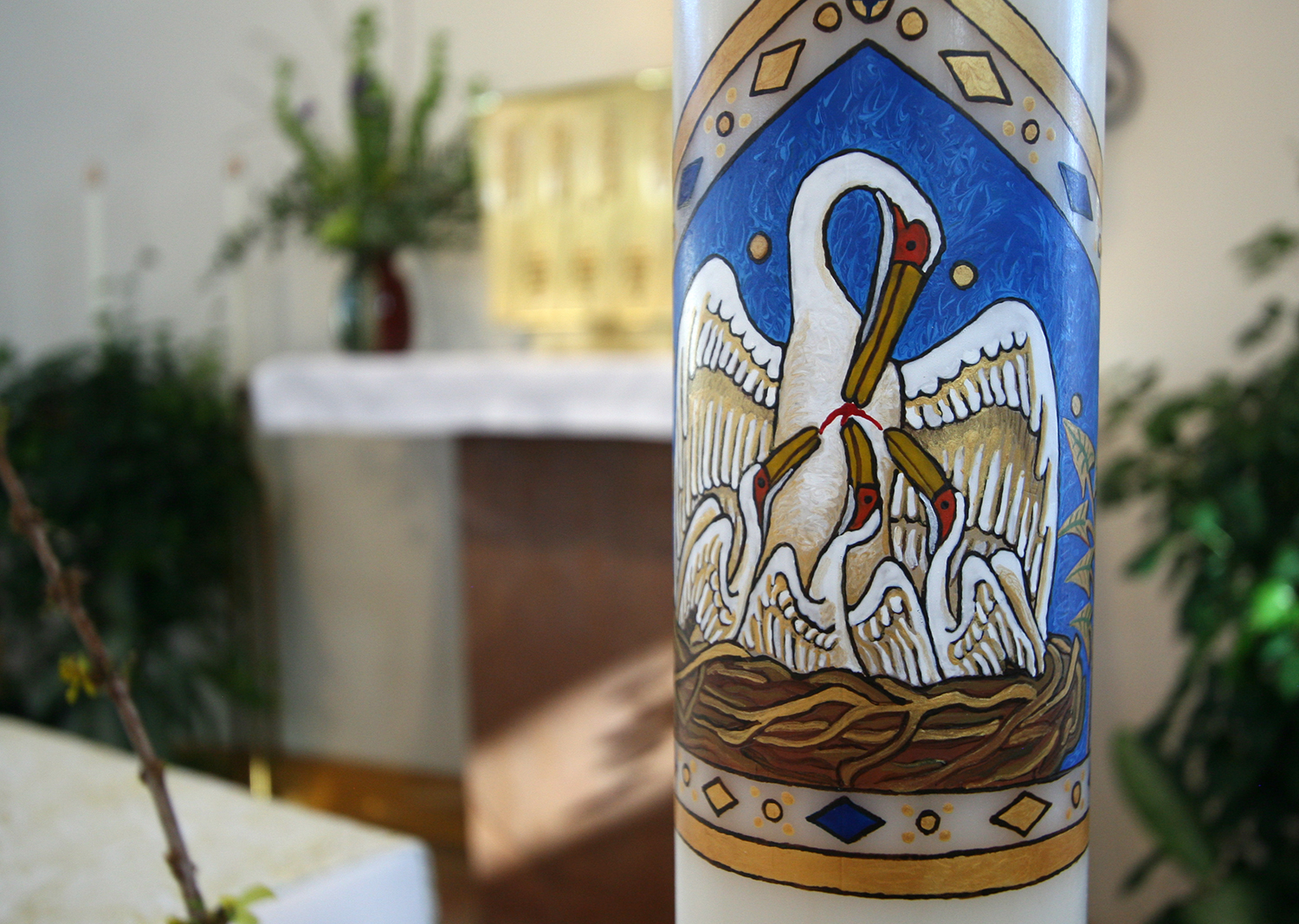
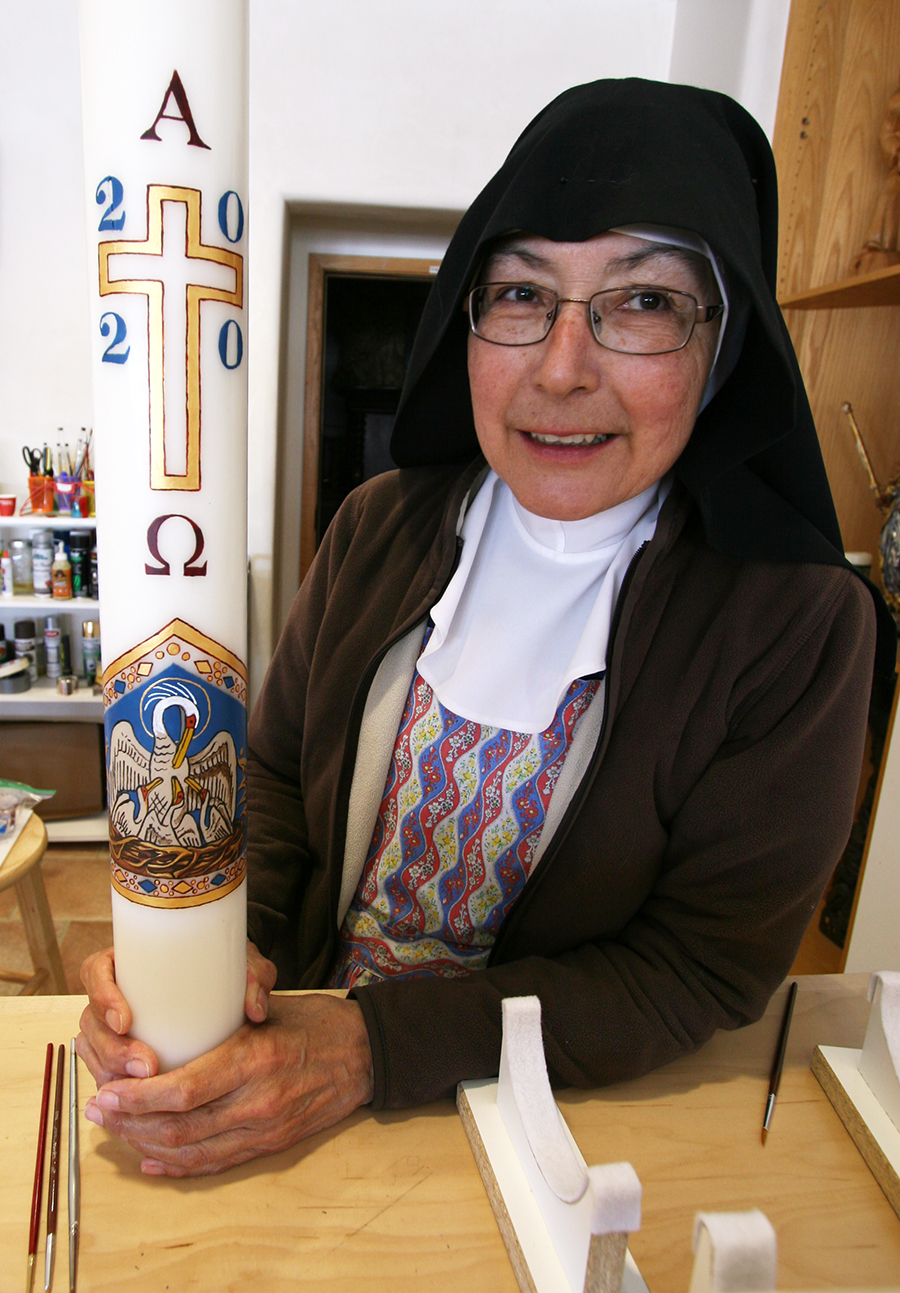
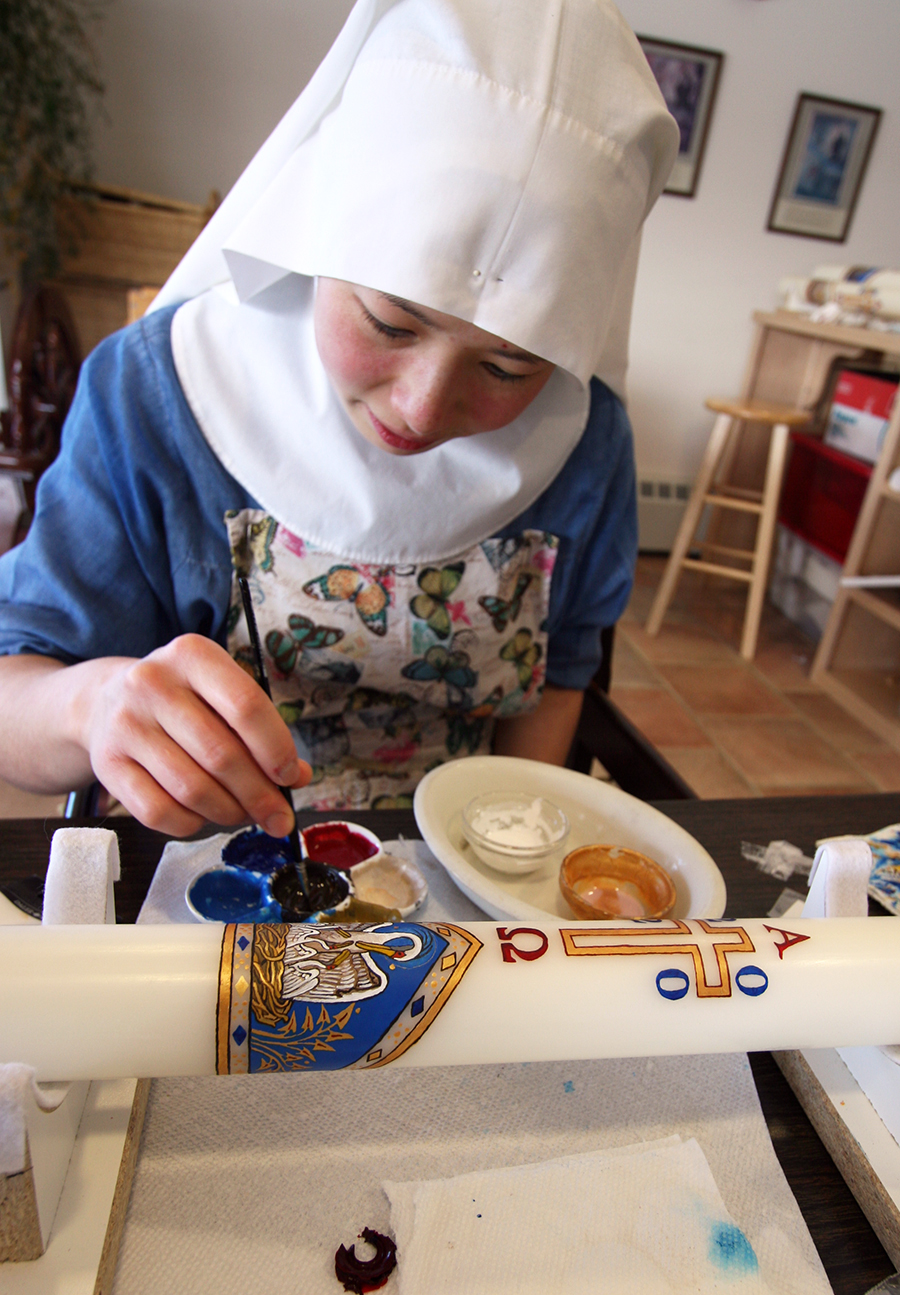
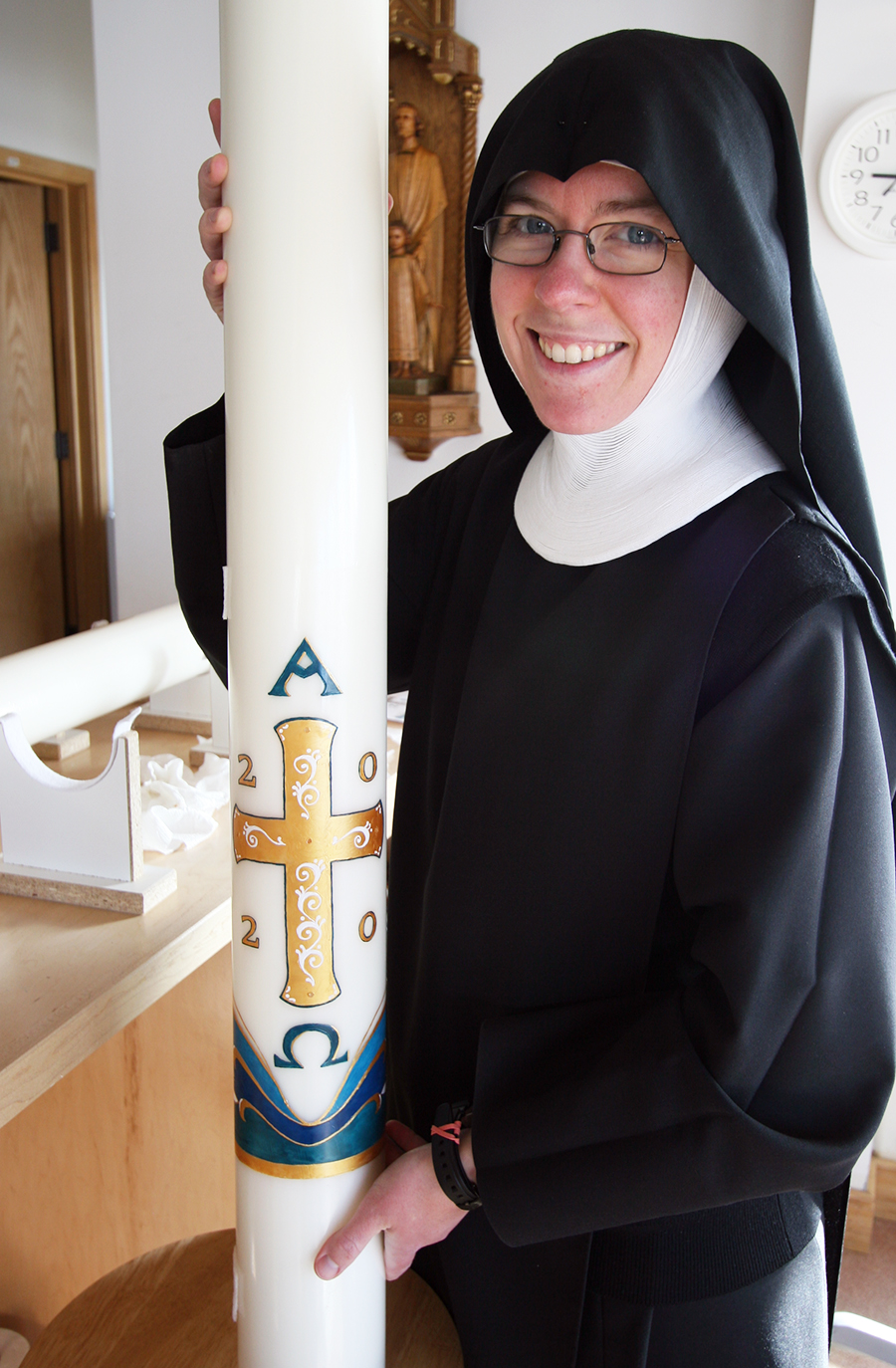
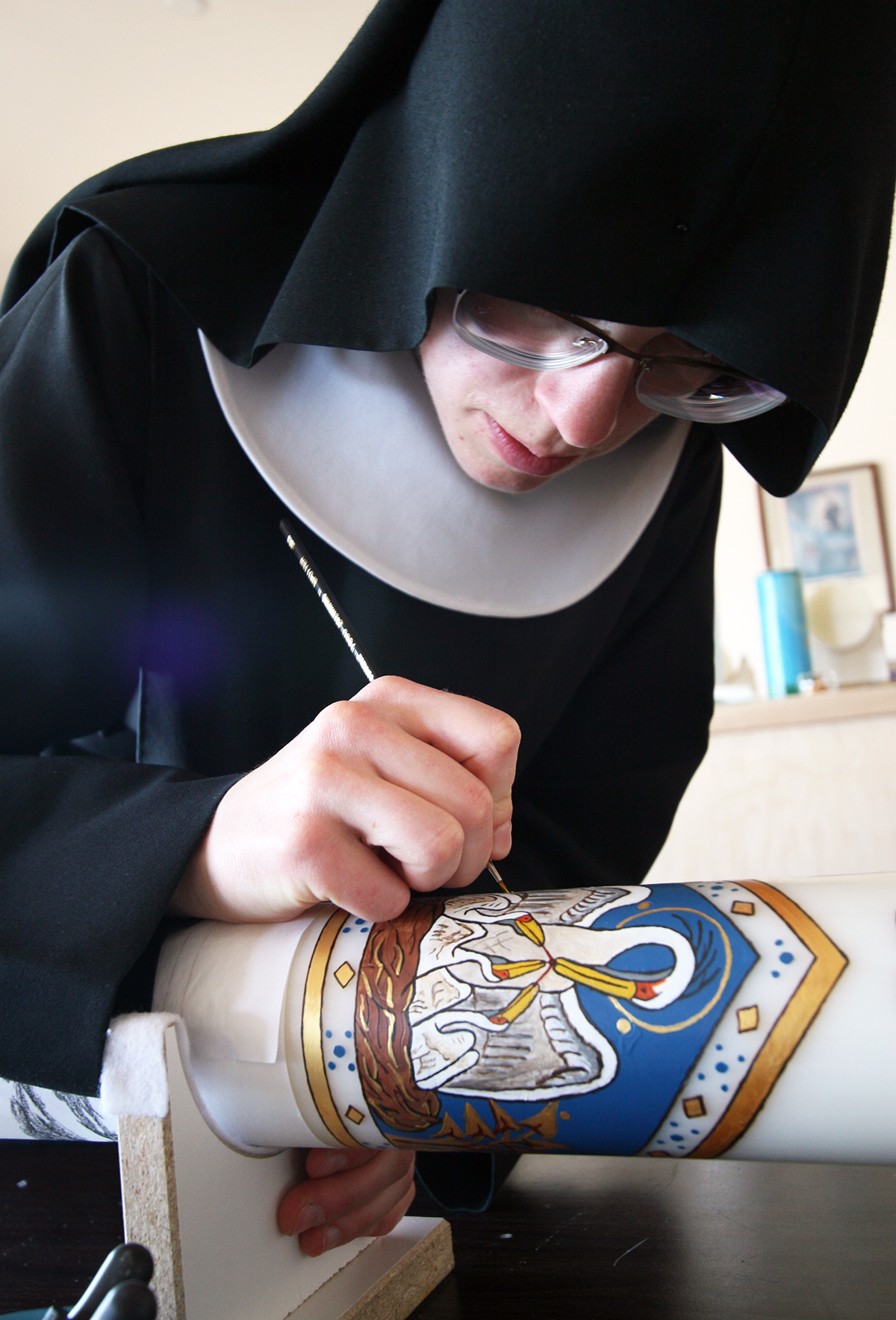
Our little Paschal Candle Department did a beautiful job with this year’s artwork. Sister Ancilla masterminded the unique pelican design, and Sister Fidelis the parting of the Red Sea design. Since about the 12th century the pelican has been a symbol of the Passion of Christ, since the mother is known to pierce her own chest to provide blood for her young if there is no other food available. The parting of the waters is reminiscent of the Catecheses by Saint John Chrysostom, bishop:
The Israelites witnessed marvels; you also will witness marvels, greater and more splendid than those which accompanied them on their departure from Egypt. You did not see Pharaoh drowned with his armies, but you have seen the devil with his weapons overcome by the waters of baptism. The Israelites passed through the sea; you have passed from death to life. They were delivered from the Egyptians; you have been delivered from the powers of darkness. The Israelites were freed from slavery to a pagan people; you have been freed from the much greater slavery to sin.
A reflection on Lenten fasting by Mother Maria-Michael Newe, OSB
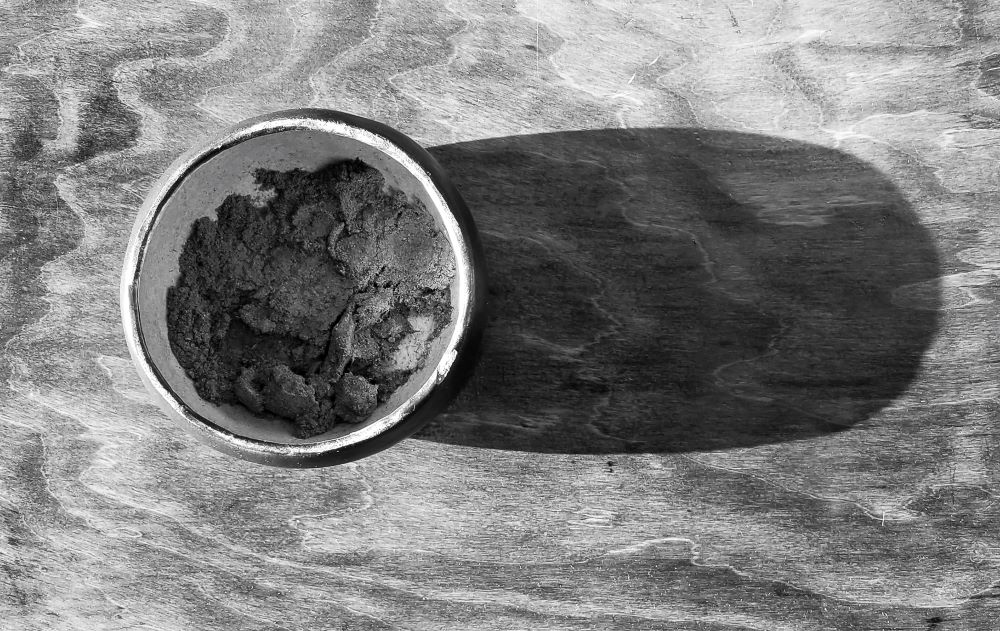
Bowl of ashes used during Mass on Ash Wednesday
“See, on your fast day you carry out your own pursuits, and drive all your laborers. See, you fast only to quarrel and fight, and to strike with a wicked fist!… Is this not, rather, the fast that I choose: releasing those bound unjustly, untying the thongs of the yoke; setting free the oppressed, breaking off every yoke? Is it not sharing your bread with the hungry, bringing the afflicted and the homeless into your house; clothing the naked when you see them, and not turning your back on your own?”
Isaiah 58:3-8
There are so many ways we can apply this reading from Isaiah to our lives. Here are just a few examples that came to my mind as I was thinking about this idea of holy fasting:
Releasing those bound unjustly. This can be anyone you judge in your heart and are holding a grudge against. There’s one to release!
Untying the thongs of the yoke and setting free the oppressed. There are many behaviors by which we can yoke each other. Emotional behaviors that harm others or leave them feeling oppressed can be lifted. We’ve all been guilty of that passive aggressive attitude where we’re angry and we want someone to know it—without saying a word we are loud and clear. Do we really need to do that? Over time we learn that we are called to bear the yoke ourselves and not place it on another. We can bear a little bit for one another. Don’t I love you enough to bear a little more? That’s really what strengthens the heart and the soul—being able to bear the brunt for another, because you can be assured that others are bearing the brunt for you too.
Sharing your bread with the hungry. Your good word can truly feed another, in person or through prayer.
Sheltering the oppressed and the homeless; clothing the naked. Don’t stare at the weaknesses of others and then tell them about it. Rather, clothe them with prayer and with your good will for them.
And don’t turn your back on your own. Help your neighbor; and I don’t mean only your neighbor. I knew a family who used to be so eager and ready to help their neighbors—mowing their lawn, weeding their yard—while the weeds in their own yard were six feet tall. So you can always look around your own house for little ways to help and serve your own, too. Let us strive to be a blessing for one another.
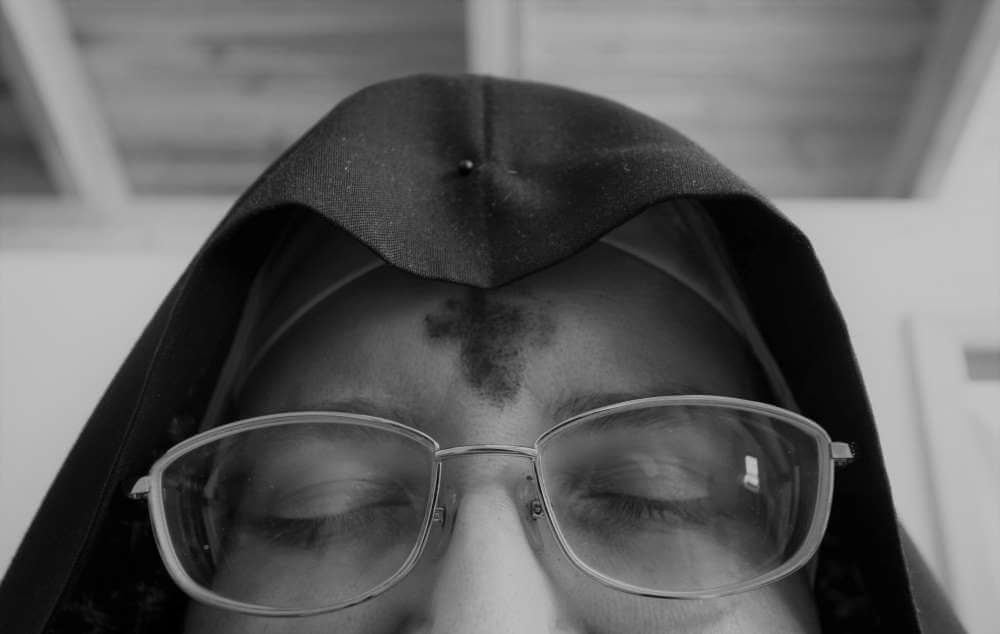
We are now in our second week of “lock-down” at the Abbey. Thankfully, none of our Sisters have shown signs of the coronavirus yet, but our hearts go out to all those who have suffered and died from this disease. We hope that it will quickly come to an end, and that in the meantime we may use this trial as an opportunity to grow in deeper, more intentional love for each other and for the Lord, fixing our gaze on those things that are eternal.

“…light and darkness, bless the Lord…”
Daniel 3:72